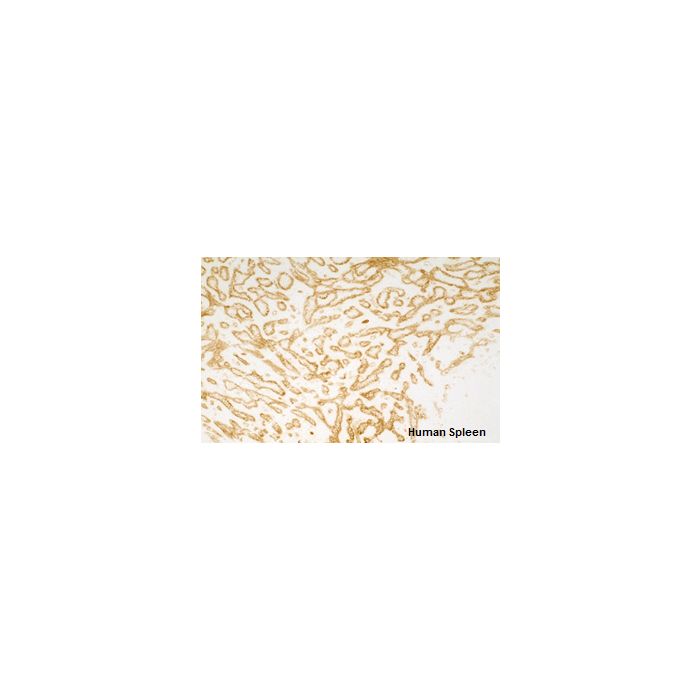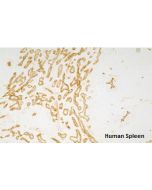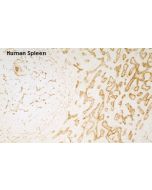Cookie Policy: This site uses cookies to improve your experience. You can find out more about our use of cookies in our Privacy Policy. By continuing to browse this site you agree to our use of cookies.
AdipoGen Life Sciences
anti-TIE-2 (human), mAb (tek2)

| Product Details | |
|---|---|
| Synonyms | Tyrosine Kinase with Ig and EGF Homology Domains-2; Angiopoietin-1 Receptor; Tie2; CD202b |
| Product Type | Monoclonal Antibody |
| Properties | |
| Clone | tek2 |
| Isotype | Mouse IgG1 |
| Immunogen/Antigen | Recombinant human soluble extracellular domain of TIE-2. |
| Application |
ELISA: (1-2μg/ml) |
| Crossreactivity | Human |
| Specificity |
Native human TIE-2 in ELISA experiments and on the surface of different human cell types. |
| Purity | Protein G purified. |
| Purity Detail | Protein G purified. |
| Formulation | Lyophilized. |
| Reconstitution | Centrifuge vial prior to opening. Reconstitute with sterile water to a concentration of 0.1-1.0mg/ml. |
| Isotype Negative Control | |
| Shipping and Handling | |
| Shipping | BLUE ICE |
| Short Term Storage | +4°C |
| Long Term Storage | -20°C |
| Handling Advice |
After opening, prepare aliquots and store at -20°C. Avoid freeze/thaw cycles. |
| Use/Stability | Stable for at least 6 months after receipt when stored at -20°C. |
| Documents | |
| MSDS |
 Download PDF Download PDF |
| Product Specification Sheet | |
| Datasheet |
 Download PDF Download PDF |
TIE-2 acts as cell-surface receptor for ANGPT1, ANGPT2 and ANGPT4 and regulates angiogenesis, endothelial cell survival, proliferation, migration, adhesion and cell spreading, reorganization of the actin cytoskeleton, but also maintenance of vascular quiescence. It has anti-inflammatory effects by preventing the leakage of proinflammatory plasma proteins and leukocytes from blood vessels. It is required for normal angiogenesis and heart development during embryogenesis and for post-natal hematopoiesis. After birth, it activates or inhibits angiogenesis, depending on the context. It inhibits angiogenesis and promotes vascular stability in quiescent vessels, where endothelial cells have tight contacts. In migrating endothelial cells that lack cell-cell adhesions, ANGT1 recruits TEK to contacts with the extracellular matrix, leading to the formation of focal adhesion complexes, activation of PTK2/FAK and of the downstream kinases MAPK1/ERK2 and MAPK3/ERK1 and ultimately to the stimulation of sprouting angiogenesis.







